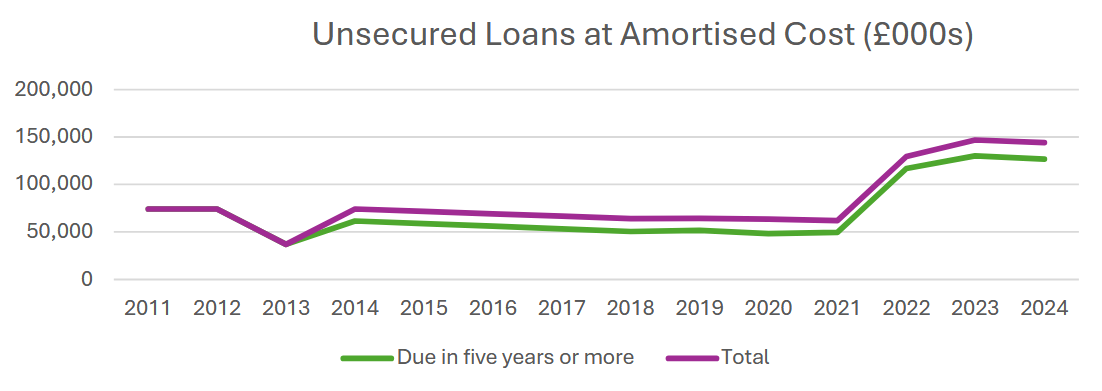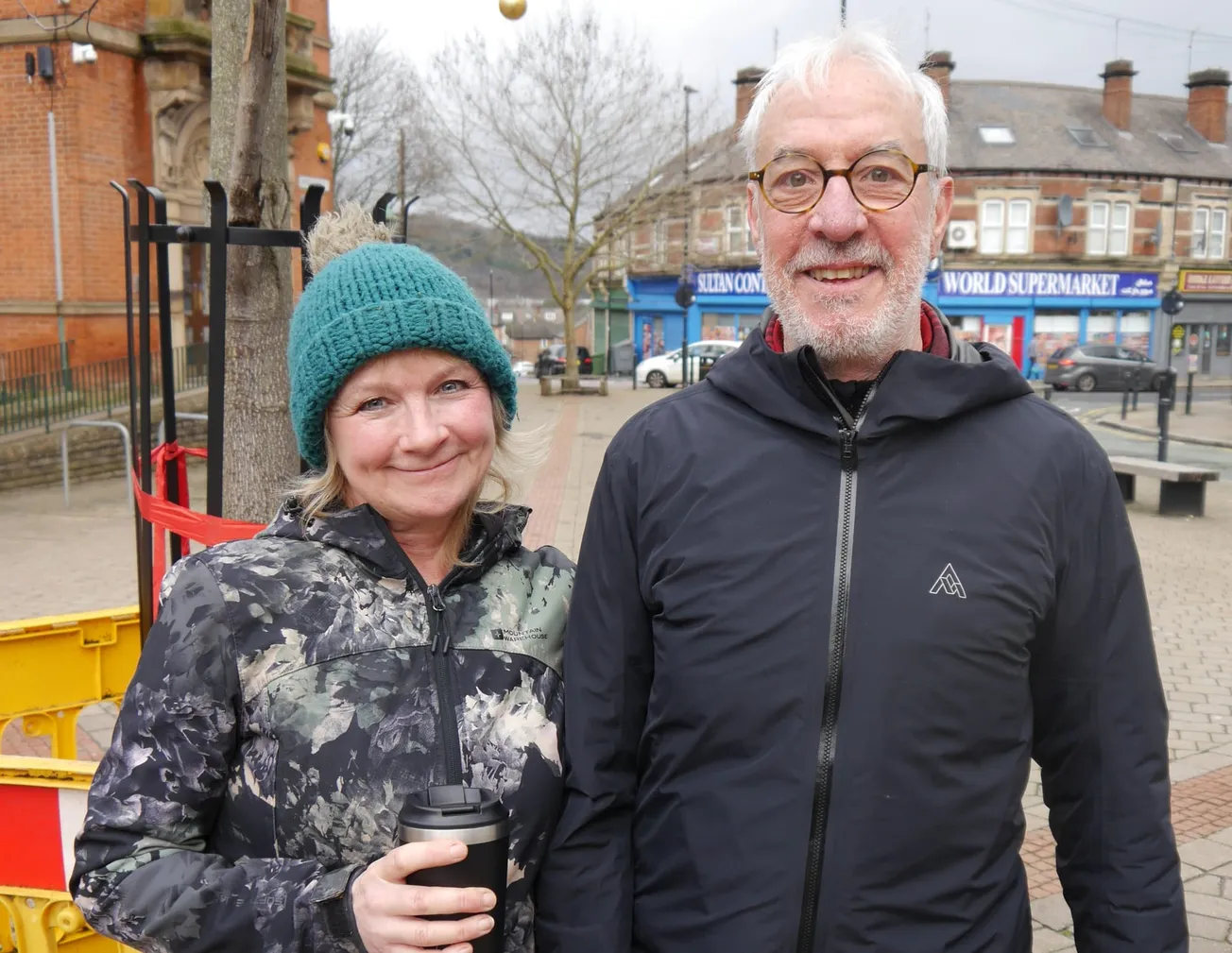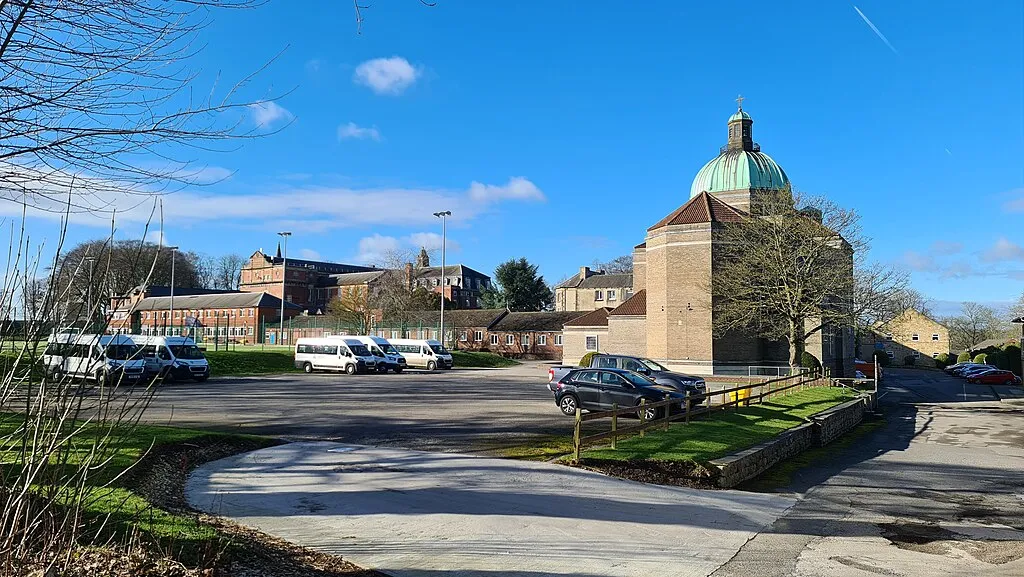Good afternoon readers — and welcome to this week’s Monday briefing.
It’s not every day we get to see The Tribune’s journalism cited in full academic style! On Friday, a group of Hallam academics — all members of the University and College Union – published a 26-page report detailing why they believe their alma mater’s “perilous” financial position is actually the result of mismanagement by the university’s leadership, rather than merely sector-wide challenges. That’s today’s story.
Hello there! A warm welcome to The Tribune. What’s that, I hear you ask? The Tribune is South Yorkshire's quality newspaper delivered to over 35,000 readers.
If you’d like briefings, features and investigations delivered directly to your email free of charge, then you’re in the right place. Click the button below to sign up for free.
In case you missed it
Last week, members got a deep dive from Tribune fan favourite David Bocking about Wyming Brook, the series of cascades and criss-crossing bridges that plunges through thick woodland. So why are so many trees being cut down? Read it here.
And yesterday, we brought you the latest update on our investigation into Andrew Milne, the solicitor who bought up hundreds of Sheffield freeholds over the summer and proceeded to send “very aggressive” letters. We spoke to Becky, who was contacted by Milne after her mother died, leaving the childhood home behind. But Milne didn’t want Becky’s money — he wanted the whole house, worth £300,000 (despite only paying £400 for the freehold). “I’m proud to subscribe to The Tribune and it’s amazing to see you do so much for ordinary people. Independent journalism at its best,” commented Charlie.
After hearing nothing from Milne when we asked about his behaviour, Daniel took to the road to find Milne and get some answers out of him. Featuring border crossings, a luxury flat in South Kensington, and a stake out outside a derelict pub, you won’t want to miss it.

If you’d like to read that piece, you’ll need to be signed up as a paying subscriber to The Tribune. So far, our investigations have involved a huge undertaking to gather evidence, fight off legal threats and knocking on doors across England and Wales to understand what homeowners are experiencing. We can only do this work because of our paying subscribers. Please consider supporting our investigative reporting by taking out a paid subscription – there’s no better time than now.
The big picture: Oh, Christmas tree…🎄

It might still be a bit early, but Sheffield’s Christmas Markets look great, don’t they? The above picture was captured at the top of Fargate by the Steel City Snapper last Thursday.
The big story: Hallam staff publish 26-page report on university’s ‘perilous’ finances
Top line: Academic staff at Sheffield Hallam University have published a 26-page anonymous report, which argues “a series of reckless decisions taken by university management” over the last 14 years are largely to blame for the institution’s “perilous” financial position. While Hallam’s leadership has previously pointed the finger at sector-wide external factors, such as changes to the rules around international students, Hallam’s branch of the University and College Union (UCU) insist they “do not accept this simple, unreflective narrative”. They’ve timed the report to coincide with the latest round of strike action, triggered by Hallam’s refusal to rule out the prospect of compulsory redundancies before spring.
‘Unprecedented cuts’: In the last two years, around 1,000 academic and support staff have left the university through a series of voluntary severance schemes, which UCU Hallam member Bob Jeffrey told the BBC represented about a fifth of the workforce. "It is really eroding our ability to do our jobs and will also be having a dramatic impact taking that many jobs out of the local economy here in Sheffield," he said.
One academic, who asked to be anonymous, told The Tribune: “There’s a lack of trust and faith that the leadership can steer us through this. Each time there’s a round of cuts or a restructure, the people that make it to the other side think it must be over now, because we can’t lose any more people. Then, as if from nowhere, there’s another one.”
‘High risk and imprudent’ spending: Between 2011 and 2024, Hallam’s total expenditure per year increased by just over 55%. “Staff costs” increased by 40%, while “interest and other finance costs” more than tripled over the same period — from £2.1million in 2011 to £7.1m in 2024. The UCU report points to a £70m loan that Hallam took out to help fund its new £140m campus in the town centre, which opened in September. “While we all want the best available facilities for our students,” the report states, “it is questionable whether such investment will make the university more competitive, given that there are very many institutions that are investing larger sums in new buildings.” The report argues it was especially reckless to take out this large loan in early 2022, “when income from home undergraduate students was beginning to plateau and then decline”.

When contacted by The Tribune, a Hallam spokesperson reiterated the university’s previous insistence that the new campus on Howard Street is a necessary spend. “The competitive nature of the UK higher education sector means we need to invest in our estate to be an attractive choice for prospective students,” they said, adding that the buildings are also “a huge asset” for both Hallam and the city. “The new buildings are attractive, modern and environmentally sustainable, allowing us to consolidate our estate more efficiently.”
New online-only courses: In addition to rehashing their concerns about the new Brent Cross satellite campus which Hallam is opening in London, the UCU report also criticises another of the university’s more recent attempts at “income diversification”. Starting this year, Hallam now offers masters degrees that are entirely taught online in a few subject areas, including healthcare courses. These new courses are the result of a partnership with a company called HigherEd Partners (HEP), who are responsible for marketing and recruiting students, while Hallam staff are responsible for all teaching. The UCU report alleges that members have complained of this leading to “significant increases” in their workloads, even though “at least some of those courses have failed to recruit”. When asked by The Tribune how many students had applied to the new online-only masters this year, Hallam declined to respond.
Senior salaries: The UCU report also points out that, since Covid, the sums spent on the university’s most senior staff have ballooned, despite the institution’s dire financial straits. According to a Freedom of Information request submitted by the Taxpayers’ Alliance, in 2020 only 14 members of Hallam staff received more than £100,000 in total remuneration (basic salary plus any pension contributions, National Insurance payments, bonuses or other payments). However, by 2024, 112 Hallam staff received total remuneration over this threshold, an eightfold increase.
When contacted by The Tribune, a Hallam spokesperson said: “We strongly refute the claim around senior salaries, which is inaccurate and misleading.” They pointed out that only 18 members of Hallam staff receive an annual salary of more than £100,000, representing less than 1% of all staff, and noted that one-off severance payments are included in the total remuneration data requested by TaxPayers’ Alliance. They added: “We have also reduced the size of our executive team in the last 18 months, with a reduction of four posts.”
‘Cost recovery exercise’: One of the executive posts removed last year was the position of Pro Vice-Chancellor for Research, which some Hallam academics point to as evidence of a worrying shift away from research at the university. When the pro vice-chancellor was in post, one academic told The Tribune, “our performance was improving and research was increasing. It felt really promising and like we were in steady hands.” However, the academics argue that the university’s most senior leadership seem to view research as not worth the investment it requires, alleging that one member of the executive team referred to research as a “cost recovery exercise” in an all-staff briefing. (When asked about this incident, Hallam did not respond.) Despite Hallam’s income from research grants and contracts increasing from £8.5m in 2018 to £18.5m in 2024, some staff argue the “perceived downgrading in research by the university in the last two years” could deliver another blow to the university’s finances.
Back on the shelf: While it is relatively minor compared to the job losses and radical restructures at Hallam, the UCU report also notes sadly that 2025 is also the first year in over a decade that the university has not been involved in the literary festival Off the Shelf, presumably for budgetary reasons. “Off the Shelf is one of the longest running literary festivals in the UK, currently in its 34th year, and attracting some of the biggest names in literature, from Carol Ann Duffy to Doris Lessing, Ian Ranking to Benjamin Zephaniah.”
‘Tough decisions’: When contacted by The Tribune, a Hallam spokesperson reiterated the university’s argument that it is being forced to make “tough decisions” due to financial challenges facing universities across the sector. “It is important to be clear that we have been able to make significant savings without the need for any compulsory redundancies,” they said. “We will continue to seek to avoid them where possible and, as always, will engage closely and constructively with our staff and trade union representatives.”
Your Tribune briefing 🗞️
📽️ In the Observer, Mark Herbert, co-founder of Warp Films, reflects on a year of extraordinary success in which the film company’s Netflix hit Adolescence scooped eight Emmys and received critical acclaim for its BBC thriller Reunion, which tells the story of a deaf man released from prison. What’s next? A remake of Threads, currently “at a very early stage”, a paid internship scheme supported by Netflix aimed at those living in South Yorkshire, an “AI horror” and more from the team who wrote Adolescence. “I’ve been fortunate enough to collaborate with Warp and especially Mark Herbert for over 20 years,” Stephen Graham says of the Warp Films team. “He always makes you feel like anything is possible. Mark is a man for the underdog, a voice of the people.” Read the full piece here.
🇸🇩 The Sudanese diaspora in the UK are urging for action to be taken against Abdalmonim Alrabea, a 44-year-old British citizen living in Sheffield who laughed on a TikTok Live broadcast while a notorious fighter from Sudan’s paramilitary Rapid Support Forces group boasted about participating in the mass killing of unarmed citizens in the city of El Fasher. “Today I killed 2,000 people and then I lost count. I want to start again from zero,” Abu Lulu says at one point in the livestream, to which Alrabea responds with laughter. Mohamed Suliman, a Sudanese researcher and writer based in Boston, says Alrabea is a “dedicated RSF supporter” who “might be the group’s most influential social media activist”.
📖 Marina Lewycka, a Ukrainian novelist whose unexpected bestseller A Short History of Tractors in Ukrainian was translated into 37 languages, has died aged 79. Born in 1946 in a displaced-persons camp in Kiel, Germany, her family later settled in Sheffield where she found work in a local sausage factory, working as a sausage twister. “It was really, really awful,” she once told The Times. “You stood on duck boards above this festering grey water full of remnants, and you just chucked things on the floor.” She wrote her debut novel while studying a creative writing course at Sheffield Hallam, a course she later credited with encouraging her to take herself seriously as a writer. She worked at Sheffield Hallam as a media studies lecturer until her retirement in 2012.
📰 Terribly sad news reached us on Friday that Sheffield-born journalist Rachel Cooke had died, aged 56. Rachel went to Tapton School and won a place at Oxford, before starting a 35-year-long career on national newspapers. Much of that was spent at the Observer, where, in 2024, she wrote about The Tribune and our parent company Mill Media. Rachel told us she had become aware of The Tribune on one of her trips back to Sheffield, and was a big fan of what we were doing. For a tiny startup title like ours, getting some exposure in a national newspaper was huge, and we'll forever be grateful to her for doing it. Condolences to all who knew her.
The Tribune is best in your inbox. Never miss an edition and hear from us as soon as we publish. Just sign up for free by clicking below.
The weekly Whitworth ✍️

Thanks for reading The Tribune and supporting our work. The only reason we’ve been able to dedicate so much time and energy to the Andrew Milne story is because of our paying members. Currently, The Tribune is roughly 40 members short of hitting 2900 paying subscribers — a huge milestone for us and something we’re immensely proud of. Journalism like this isn’t cheap to produce, frankly, but we think it’s surely worthwhile.
And there’s no better time to sign up. If you join today you can get your Tribune subscription for £4.95 a month for your first three months thanks to our introductory offer. What’s not to like?
Home of the week 🏡

You don't get many four bedroomed homes in Kelham Island, but there are a few. This beautiful townhouse in Little Kelham has four spacious bedrooms, two bathrooms and a downstairs toilet, bamboo flooring throughout and a private garage. It also has two outdoor areas: a ground floor terrace and a second floor balcony. It is on the market for £425,000.
Things to do 📆
Plants 🌱 This evening at the Mowbray in Neepsend is Talking Plants, a social evening for people who love plants. The main attraction tonight will be a talk by Grey to Green creator Nigel Dunnett from the University of Sheffield who will talk about his latest projects including the new roof garden for King’s College Hospital, Grosvenor Square and the Queen Elizabeth II memorial in St James’ Park. Tickets are £8 (£5 for students) and doors open at 7.30pm.
History 🚨 On Tuesday, join top storyteller Adrian Finney at the Beaten Track on Campo Lane for one of his rare true crime events, The Sins of Sheffield. Whether you're a true crime aficionado, a history buff, or just looking for an evening of entertainment that's a little bit different, it will be an unforgettable evening of intrigue and laughter as he delves deep into the dark underbelly of Victorian Sheffield. Tickets are priced £10 and doors open at 7pm.
Books 📚 On Thursday, join The Writers’ Workshop at Sheffield Plate to celebrate the recent release of Hagtale: A Macbeth Origin Story by Sheffield-based novelist Sally O'Reilly, a story told from the perspective of one of the witches. Sally will talk about how the novel came to be and dive into its characters and themes, before signing copies of her new book. Afterwards, it's over to you for the open-mic event. Tickets are free. Doors open at 6.45pm.
Film 🎞️ On Sunday evening, head to Common Ground Community Centre in Nether Edge for a screening of POWER STATION, a documentary film that follows a couple trying to equip the houses on their street with solar panels, thereby transforming the neighbourhood into a power station. In a Guardian review after the film’s premiere at Sheffield Doc Fest, the writer Phuong Le called it “a powerful reminder of what can be achieved when we simply talk to our neighbours…it is heartwarming to see different people, from diverse backgrounds but bound by shared economic struggles, come together to make green energy a reality”. Tickets are £5, or free for those on low wages.
If you’d like to sponsor editions of The Tribune and reach over 30,000 readers, you can get in touch or visit our advertising page below for more information







